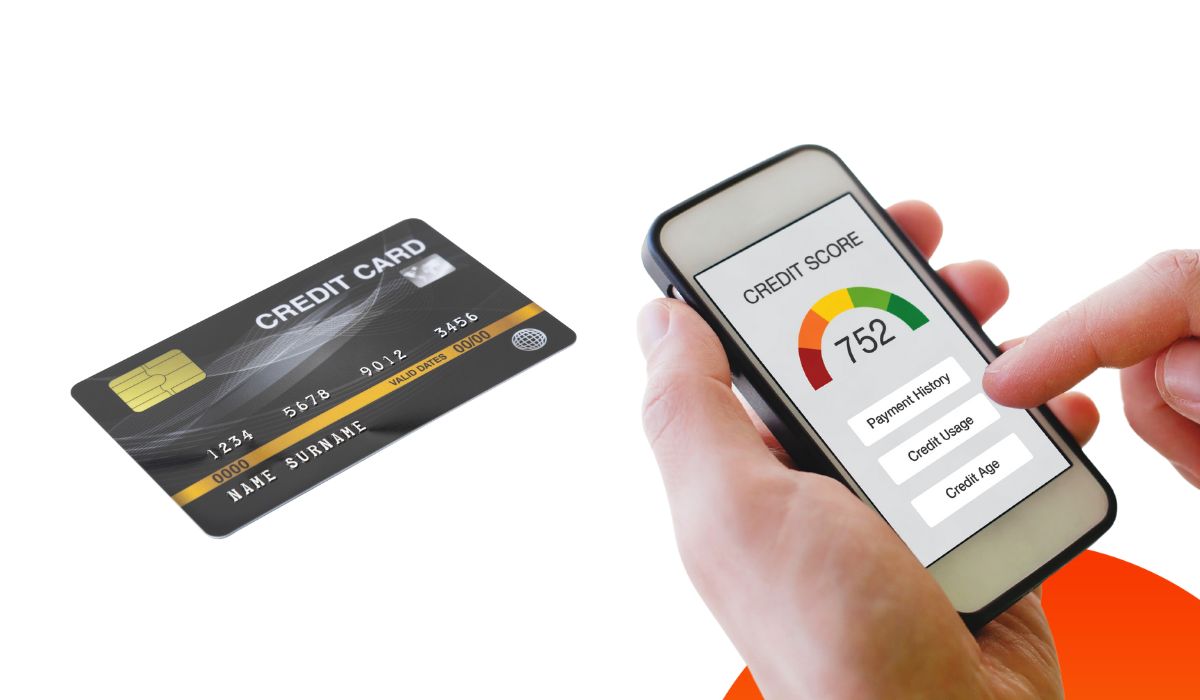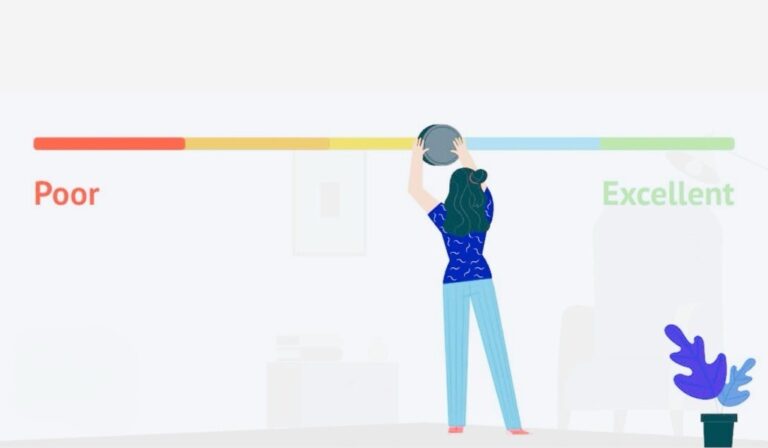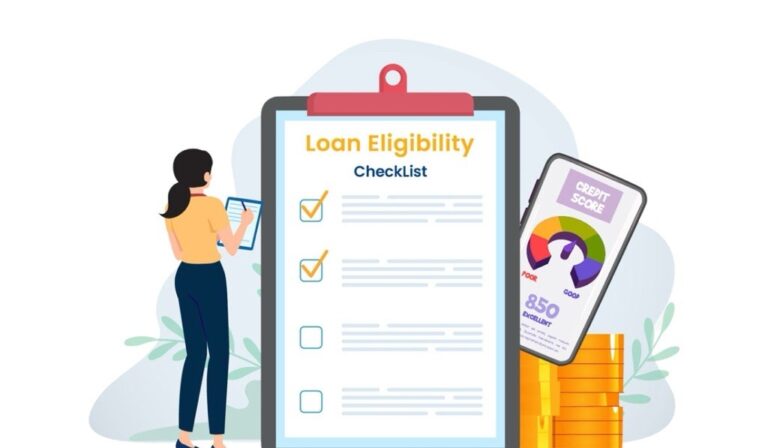Applying for a credit card in India? Unsure what CIBIL score you need? Don’t worry, we’ve got you covered. While there’s no set minimum, a strong CIBIL score can significantly improve your chances of approval and unlock better credit card benefits. Let’s explore the impact of your CIBIL score on your credit card journey.
What is CIBIL Score for Credit Card?
When applying for a credit card in India, your CIBIL score plays a vital role. This 3-digit numeric value, generated by the TransUnion CIBIL credit bureau, represents your creditworthiness. It reflects your history of managing loans and credit cards, including repayments and defaults. A higher CIBIL score indicates responsible credit behaviour and improves your chances of getting a credit card with better terms, like higher limits and lower interest rates.
Minimum CIBIL Score for Credit Card Approval
There’s no single minimum CIBIL score requirement for credit card approval in India. Banks and NBFCs consider various factors beyond your score. However, a generally accepted benchmark suggests a score of 700 or above increases your chances of securing a credit card with favourable terms like higher credit limits and lower interest rates. Conversely, lower scores might lead to card rejection or approval for cards with less attractive features.
How to Check Your CIBIL Score for Credit Card?
Knowing your CIBIL score is crucial before applying for a credit card. Here are several convenient methods to check your CIBIL score:
- Free Annual Report: You’re entitled to a free CIBIL score report every year from the CIBIL website (https://www.cibil.com/). Simply register or log in using your PAN card details and follow the on-screen instructions.
- Paid Credit Report Services: Several websites and banks offer paid credit report services that provide a more detailed report along with your CIBIL score. These reports may include additional information like a credit history analysis and personalized recommendations for improving your score.
- Credit Card Issuers: Some credit card issuers, especially when you pre-qualify for a card, may provide your CIBIL score during the application process.
- Mobile Apps: A few mobile apps allow you to check your CIBIL score for free or a minimal fee. Be cautious and choose reputable apps with secure login processes to protect your financial information.
Why Do Banks Assess Your Credit Score Before Issuing a Credit Card?
Banks assess your credit score before issuing a credit card for several key reasons:
- Credit cards are a form of unsecured debt, meaning the bank lends you money without any physical collateral. A good credit score indicates a responsible borrower with a lower likelihood of delinquency (missing payments). This translates to a reduced risk for the bank.
- Your credit score is a crucial data point that helps banks determine several aspects of your credit card offer. A strong score might qualify you for a higher credit limit, allowing you to spend more. Conversely, a lower score might lead to a lower credit limit or even rejection.
- Credit scores also influence the interest rate you’ll be charged on your credit card balance. A high score suggests you’re a reliable borrower, potentially qualifying you for a lower interest rate, which saves you money in the long run.
- Banks play a role in promoting responsible borrowing habits. By assessing credit scores, they can ensure credit cards are issued to individuals who can manage them effectively. This helps prevent excessive debt and financial strain for cardholders.
- A good credit history reflected in a high score can pave the way for a long-term and positive relationship with the bank. This can lead to better loan terms and access to other financial products in the future, such as mortgages or personal loans.
List of Credit Cards for Individuals with Poor Credit or Low CIBIL Scores:
Having a low CIBIL score can limit your access to traditional credit cards. However, there are still options available to help you build your credit history and demonstrate responsible financial behaviour. Here’s a look at credit cards suitable for individuals with low CIBIL scores:
|
Credit Card |
Minimum CIBIL Score |
| SBI Easy Credit Card (Secured) |
675 |
| HDFC Bank EasyEMI Card (Secured) |
650 |
List of Credit Cards for Average and Google CIBIL Scores:
Your CIBIL score plays a significant role in determining your credit card eligibility and the terms you’ll qualify for. Here’s a breakdown of credit card options suited for both average and high CIBIL scores:
|
Credit Card Category |
Credit Card Examples |
Minimum CIBIL Score |
| Average CIBIL Score (650 – 749) | SBI Easy Credit Card
HDFC Bank Easy EMI Card Axis Bank Neo Credit Card ICICI Bank Instant Platinum Card |
675 |
| High CIBIL Score (Above 750) | HDFC Bank Diners Club Privilege Credit Card Kotak Mahindra Silk Credit Card
SBI Simply Save Credit Card ICICI Bank Cashback Credit Card |
750 |
Impact of Good CIBIL Score for Credit Card Approval
A strong CIBIL score demonstrably improves your credit card approval prospects. For lenders, this score serves as a reliable indicator of your creditworthiness and responsible financial behaviour. A high score signifies a reduced risk of delinquency for the lender, potentially leading to faster approvals, more favourable interest rates, and potentially higher credit limits. Conversely, a low CIBIL score might result in application rejection or approval for cards with less attractive terms.
Why do Banks/NBFCs Check Credit Scores for Credit Card Approvals?
For banks and NBFCs (Non-Banking Financial Companies), your credit score is a vital piece of the puzzle when it comes to credit card approvals. It acts as a powerful indicator of your financial trustworthiness and creditworthiness. Here’s why they check it so diligently:
- Credit cards are a form of unsecured lending, meaning the bank issues you a credit line without any collateral. By checking your credit score, banks can assess the likelihood of you repaying the borrowed money on time and in full. A high score suggests a responsible borrower and minimizes the risk of defaults for the bank.
- Your credit score can influence the credit limit you’ll be offered. A strong score indicates your ability to manage credit responsibly, potentially leading to a higher credit limit, which can be beneficial for you.
- Your credit score helps banks determine the interest rate you’ll be charged. A lower score might translate to a higher interest rate, as the bank perceives you as a riskier borrower.
- Credit scores play a role in promoting responsible lending practices. By carefully evaluating applicants, banks can ensure credit cards are issued to those who can manage them effectively, preventing excessive debt and financial strain for cardholders.
- A good credit history, reflected in a high score, can pave the way for a long-term and positive relationship with the bank. This can lead to better loan terms and access to other financial products in the future.
Can I apply for a credit card with no CIBIL score?
While it might be difficult to get a traditional credit card with no credit history (reflected by a CIBIL score), there are a few options you can explore:
- Secured Credit Cards
These cards require you to deposit a security deposit (usually equivalent to the credit limit) upfront. This deposit acts as collateral for the issuer in case you fail to make payments. Timely repayments on a secured credit card can help you build your credit history, potentially leading to an unsecured credit card in the future.
- Become an Authorized User
If you have a family member or friend with good credit standing, they can add you as an authorized user on their existing credit card. This allows you to use the card and build a credit history based on your payment behaviour. Make sure you trust the person completely and understand the potential impact on both your credit scores if payments are missed.
- Credit Cards for Students
Some banks offer credit cards specifically designed for students with limited or no credit history. These cards typically have lower credit limits and may require a co-signer (someone who guarantees the debt if you default).
- Prepaid Cards
Prepaid cards are not technically credit cards, but they can be a good alternative for building responsible spending habits. You load money onto the card beforehand, and you can only spend what you have deposited.
Also, read: How to increase CIBIL Score (Smart ways)
Frequently Asked Questions
Can I get a credit card with a 650 CIBIL score?
Ans: Possibly, but it might be a secured card or one with lower limits and higher interest rates. For better options, aim for a higher score.
Why do banks check CIBIL scores?
Ans: To assess your creditworthiness and repayment history, minimizing your risk of defaults.
Is a 700 CIBIL score good for a credit card?
Ans: Yes, 700 and above is generally considered good and can lead to better credit card offers.
Can I get a credit card with a low or bad credit score?
Ans: Yes, secured cards are an option, or some lenders may consider alternative factors with lower scores.
What should I do if I do not have a CIBIL score or have a zero CIBIL score?
Ans: Consider becoming an authorized user on someone else’s card or building credit with a secured card to establish a score.
What is the minimum CIBIL score needed for a premium credit card?
Ans: Generally, above 750, as they offer higher rewards and benefits.
How often to check your CIBIL score?
Ans: Once a year for free, but monitoring it more frequently (with services that don’t impact your score) can help you track progress.
Also, read:
- CIBIL Score for Bike Loan
- CIBIL Score for Car Loan
- CIBIL Score for Personal Loan
- How to get a personal loan with a CIBIL defaulter status?
- CIBIL Customer Care Number
- What are all the mistakes that Can Lower your Credit Score?
- CIBIL Login and Registration Process
- What is an ECN number in the CIBIL Report?
- What is STD in CIBIL Report?
- Does Changing Your Name Affect Your CIBIL Score?
- How to check and remove your name from CIBIL’s Defaulter List?
This post is also available in: हिन्दी (Hindi)





